Standing up to speak at a funeral can be rewarding … and terrifying.
But in a situation where the advice ‘imagine everyone in the audience naked’ is deeply unhelpful, how do you overcome nervousness and say what you need to say? We asked four celebrants for their advice.
To prepare…
 1) Write your speech down
1) Write your speech down
“Unless you’re really accomplished and used to speaking in public, it’s absolutely essential to write your words down,” says Clive Pashley from Premier Celebrants. Not only will the script keep you on track, but it can be comforting to read your words later on. Otherwise, “you often don’t remember much of it.”
“Do not ad lib,” stresses Yorkshire-based celebrant Adrienne Hodgson-Hoy, citing a vicar who, despite all his experience, repeatedly got the widow’s name wrong during a eulogy. “That’s when things go to pot.”
2) Practise before the funeral
Practice makes perfect. “But not too much,” warns Adrienne, “because you want it to sound natural, rather than stilted.”
This has two benefits. The first, explains Clive, is emotional. Reading the piece through a few times can take some of the sting out of them. “The more you read it, the more you deal with those emotions. Then it’s not such a shock on the day.”
The second is to simply rehearse your delivery, and make any last edits. “Get somebody to listen to you practise,” advises Adrienne. “They can give you tips about which points you need to emphasise and when to stop and breathe.”
3) Type your final draft out
 Microsoft Word is your friend, says Clive, who recommends putting the whole speech in size 16 or 18 font to make it easy to read. Add double spaces after full stops and keep paragraphs to six lines or less.
Microsoft Word is your friend, says Clive, who recommends putting the whole speech in size 16 or 18 font to make it easy to read. Add double spaces after full stops and keep paragraphs to six lines or less.
“If you’ve got just a massive solid body of text, you can easily lose your place,” he explains. “It really hinders the flow of the delivery.”
His final tip? Gobbledegook. “Often, the end of the speech is when you get overcome by emotion. But if you type out a few lines of gobbledegook after your final paragraph, it can trick your brain into thinking there’s more to come, so you don’t well up. I promise you it works!”
When the time comes for your funeral speech…
4) Breathe in, breathe out
All our celebrants agreed on this: after each full stop, remember to breathe. And take a longer, slower breath at the end of each six line paragraph. Start as you mean to go on:
“Take a deep breath and drop your shoulders,” suggests Kate Mitchell, who acts as a celebrant in the South East. “Then, fix your eyes at the back of the hall – but low, so you’re not looking above people’s heads. The main doors are usually a good point to focus on.
“Place your finger on where you are – if your eyes are blurry it’s easy to lose your place – then look up, smile, take another deep breath and begin.”
“Try to deliberately speak slowly. You might feel like it’s too slow, but it’s really going to be a normal pace.”
5) Pace yourself
“Take your time,” says Kate. When a natural pause comes, use it. “One very good suggestion is to sweep your eyes around everybody regularly,” she adds.
Adrienne agrees, warning against fast, “monotonous” speaking. “At the end of a paragraph when you are taking your breath, look up and make eye contact.”
“When people are anxious and nervous, they speak faster than usual,” explains Clive. “Stand close to the microphone and try to deliberately speak slowly. You might feel like it’s too slow, but it’s really going to be a normal pace.”
6) Don’t worry about getting upset
 “The number one thing people worry about is emotion,” says Melanie Sopp, interfaith minister. “The idea that ‘I won’t be able to hold it together and I’ll cry and it will be a mess.’ But it’s natural to be emotional.”
“The number one thing people worry about is emotion,” says Melanie Sopp, interfaith minister. “The idea that ‘I won’t be able to hold it together and I’ll cry and it will be a mess.’ But it’s natural to be emotional.”
If you do break down, don’t beat yourself up, says Adrienne. “It is emotional and it is difficult – and people will understand that. Just say you’re sorry, take a moment and then continue when you’re ready.”
Kate agrees. “No one’s expecting you to find this easy. If you start to feel upset, or that you need to stop, do stop. Just take a deep breath and say, ‘I’m finding this very hard.’ Be honest.”
It’s also perfectly normal to ask someone else to step in and finish your speech for you if you do become overwhelmed. “Never be afraid to ask for help,” says Melanie.
7) Remember, it’s worth it
Speaking at a funeral can be stressful, but it’s also very rewarding, says Melanie. “If someone thinks that they’d like to do it, then I always encourage them, because I think it can help. It can even be a healthy part of the grieving process.”
Once you’ve made up your mind, “don’t let anyone talk you out of it!” she adds. “If it’s important to you, do it.
“You’ll never, ever regret it.”
And for more inspiration…
Not yet written your funeral speech? Check out our guide on what to say in a eulogy or tribute here. And for inspiration, you can’t beat our piece on funeral speech examples. It’s filled with touching and even funny eulogies from real people.
Meet the celebrants
Clive Pashley started Premier Celebrants with his friend, James Greely, in 2016. They were later joined by Rachel Nussey. He and his team offer professional and bespoke funeral service planning across the Midlands.
Rev. Melanie Sopp is a celebrant and interfaith minister, working across the Midlands and the South coast. Melanie runs the excellent Celebrant Academy, which trains celebrants to create ceremonies and lead services of all kinds.
Adrienne Hodgson-Hoy was inspired to become a celebrant after losing her husband. Now, she leads unique, personal funeral services across Hull and East Yorkshire. With a friend, Adrienne runs Memories of Me, a service that allows people to plan their own funeral services.
Kate Mitchell is a creative independent celebrant working in the South East: her stomping grounds include Kent, Surrey and Sussex. As well as funerals, Kate leads thoughtful wedding and baby-naming ceremonies.
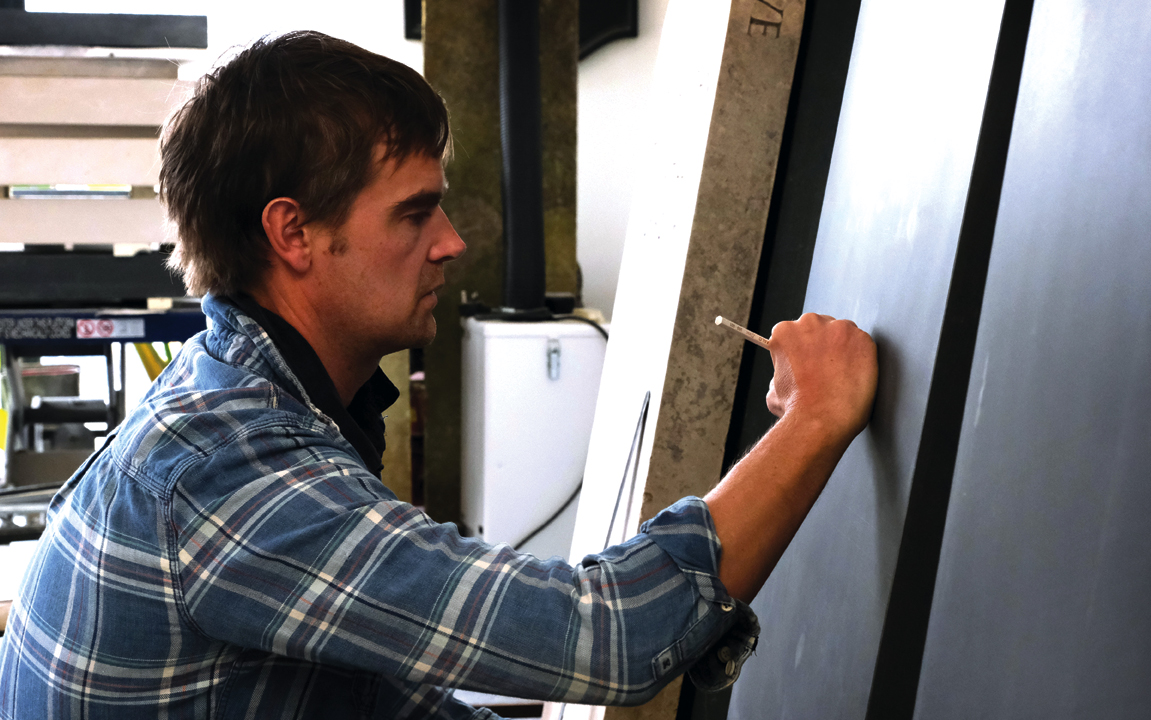

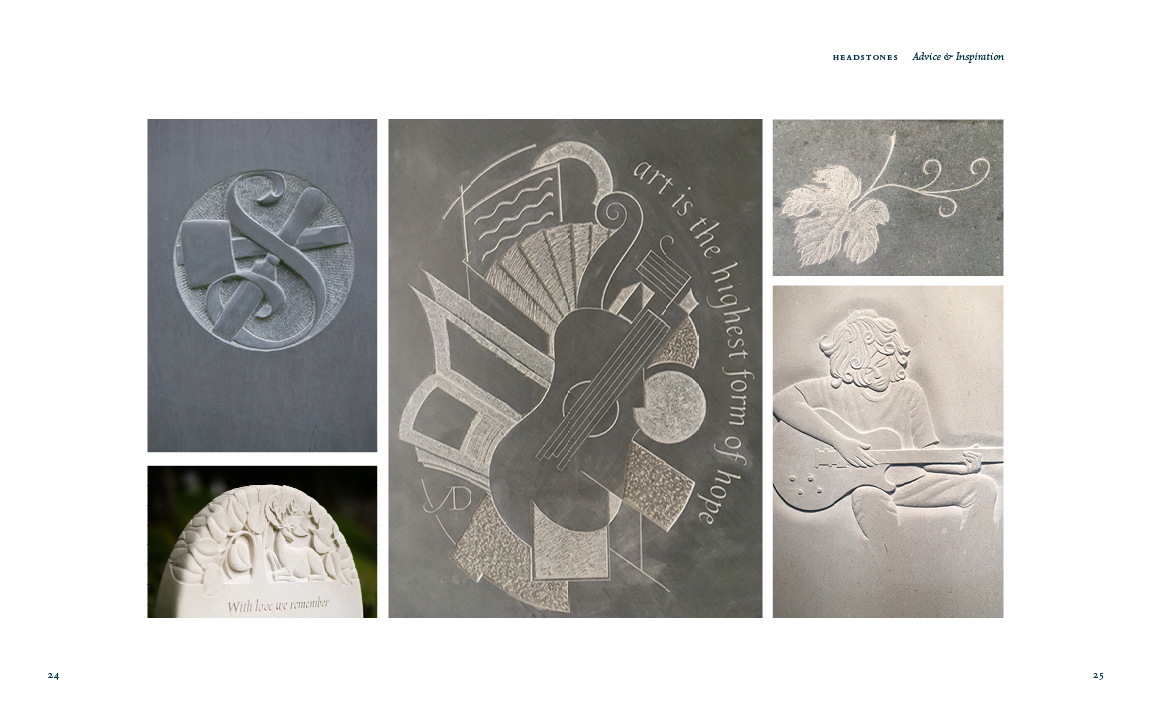

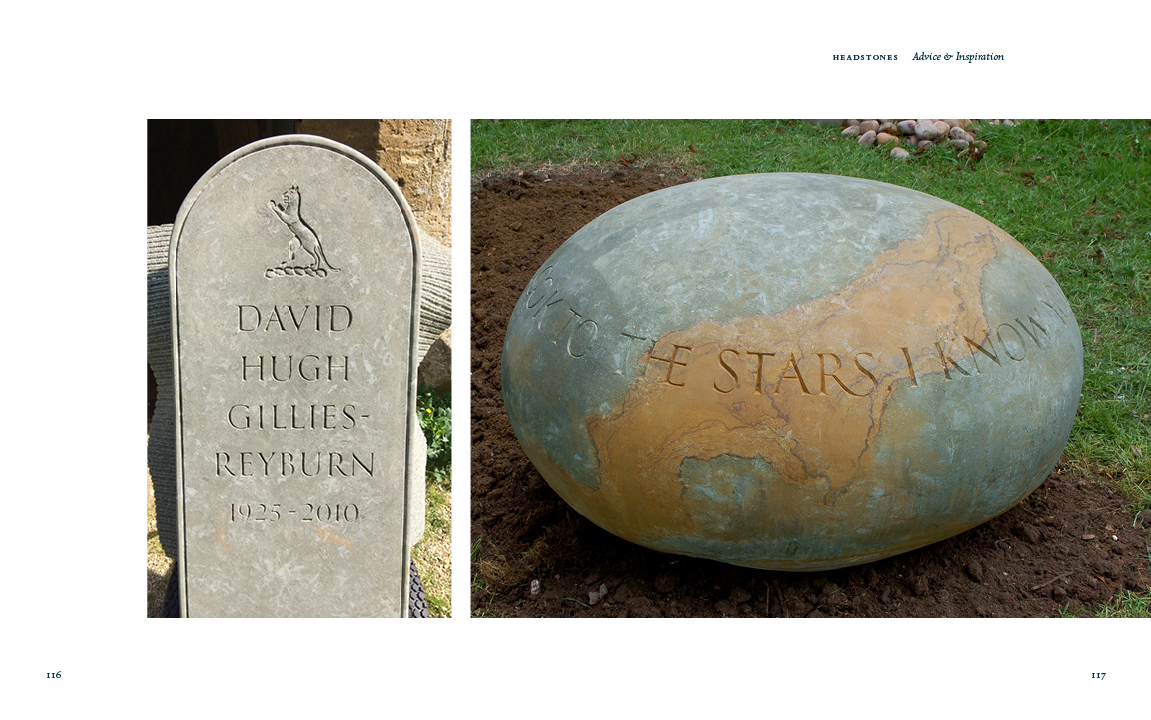
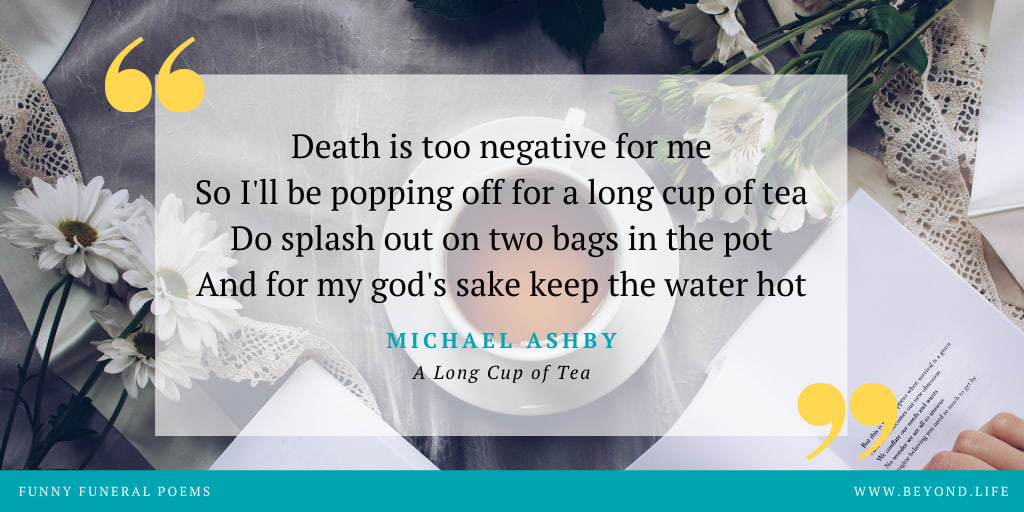
 Pardon Me For Not Getting Up
Pardon Me For Not Getting Up

 Death
Death
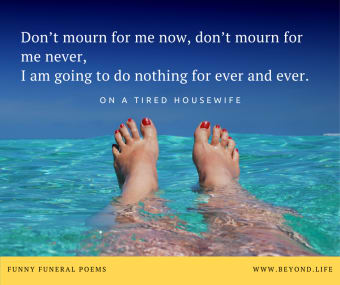

 Death
Death



 Microsoft Word is your friend, says Clive, who recommends putting the whole speech in size 16 or 18 font to make it easy to read. Add double spaces after full stops and keep paragraphs to six lines or less.
Microsoft Word is your friend, says Clive, who recommends putting the whole speech in size 16 or 18 font to make it easy to read. Add double spaces after full stops and keep paragraphs to six lines or less. “The number one thing people worry about is emotion,” says Melanie Sopp, interfaith minister. “The idea that ‘I won’t be able to hold it together and I’ll cry and it will be a mess.’ But it’s natural to be emotional.”
“The number one thing people worry about is emotion,” says Melanie Sopp, interfaith minister. “The idea that ‘I won’t be able to hold it together and I’ll cry and it will be a mess.’ But it’s natural to be emotional.”